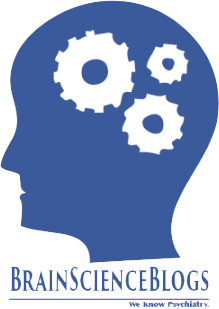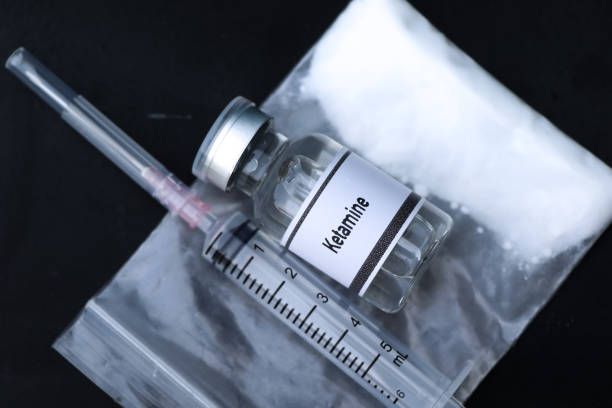This work was sponsored by a Young Investigator Grant from the American Foundation for Suicide Prevention (AFSP)
BACKGROUND
Suicide is preventable, yet still remains a worldwide cause of death in part due to a lack of available medical interventions that can work during a suicidal crisis. Most potentially helpful medications take days or weeks to work: time that is not feasible in an emergency. Novel biological targets and interventions are urgently needed for those in such pain that they are at risk of taking their life.
Ketamine, a commonly used anesthetic, has shown rapid therapeutic effects as an antidepressant for those with depression, especially when the depression is resistant to treatment. The antidepressant effect is rapid, and many have wondered if Ketamine could have the same effect specifically for suicidal behavior. This has yet to be examined in larger studies over an extended period of time.
Additional information is needed regarding whether it is feasible to use Ketamine for immediate or even longer standing suicide risk. It will also be important to determine the best dosage and means of administration for it to be considered an effective form of medical intervention for highly suicidal individuals.
THE QUESTION
Can Ketamine rapidly reduce suicidal ideation?
THE STUDY
Dr. James Murrough, an Assistant Professor of Psychiatry and Neuroscience at Mount Sinai Medical Center in New York, conducted a randomized clinical trial in which the treating clinician and participant did not know if they were receiving Ketamine or Midazolam, a calming sedative medication typically used before medical procedures. The treatment group received a single IV infusion of Ketamine. This study is unique in that the control group was receiving an active intervention, rather than a non-effective, non-active placebo.
Participants included 24 people who were being treated as inpatients and outpatients at Mount Sinai Hospital with a range of primary mood disorders and high levels of suicidal ideation (SI). Those excluded from the study because of potential negative consequences of ketamine were people with a lifetime history of schizophrenia, primary psychotic disorders or symptoms, unstable medical illnesses or clinically significant abnormal laboratory findings; those screening positive for drug use upon admission or drug use or abuse within one month preceding their admission; pregnant or breastfeeding women; and women who planned to become pregnant.
Depression, suicidal ideation and side effects were measured prior to treatment and at 24hr, 48hr, 72hr, and one week after treatment. Suicidal ideation was measured using two measurement tools, the Beck Scale for Suicidal Ideation (BSI) and the Montgomery-Asberg Depression Rating Scale (MADRS).
THE RESULTS
Both groups experienced reduced suicidal ideation after treatment. At the 24hr post measurement, the Beck Scale for Suicidal Ideation (BSI) showed no significant difference between the Ketamine and Midazolam group. However, reduced effects for suicidal ideation were significant at 48 hours following treatment intervention. Those receiving Ketamine treatment showed significantly lower suicidal ideation than those who received the control treatment.
On the other hand, MADRS-SI, a measurement tool for depression and suicidal ideation, showed a marked difference between the two treatment groups at 24hr and 48hr, with the Ketamine group showing lower rates of depression and suicidal ideation than the Midazolam group. By 72 hours there was no longer a difference between groups.
This study is one of the first demonstrations showing the rapid therapeutic effects of Ketamine as an intervention for those with increased suicidal ideation and suicidal behavior. Results are promising regarding the rapid effects of Ketamine for reducing depression and suicidal ideation.
THE TAKEAWAY
Although the effects of Ketamine are not known over extended periods of time, this novel medical intervention may have a major impact saving lives by disrupting the suicidal crisis.
Dr. Murrough’s Young Investigator Grant was sponsored by the American Foundation for Suicide Prevention
GRANT-RELATED PUBLICATIONS
- Murrough, James W., and Dennis S. Charney. “Is there anything really novel on the antidepressant horizon?.” Current psychiatry reports 14.6 (2012): 643-649.
- Murrough, J. W., et al. “Ketamine for rapid reduction of suicidal ideation: a randomized controlled trial.” Psychological medicine 45.16 (2015): 3571-3580.
- Lapidus, K. A., Soleimani, L., & Murrough, J. W. (2013). Novel glutamatergic drugs for the treatment of mood disorders. Neuropsychiatr Dis Treat, 9, 1101-1112.
- Murrough, J. W., & Charney, D. S. (2012). Is there anything really novel on the antidepressant horizon?. Current psychiatry reports, 14(6), 643-649.
- Soleimani, L., Welch, A., & Murrough, J. W. (2015). Does ketamine have rapid anti-suicidal ideation effects?. Current treatment options in psychiatry, 2(4), 383-393.
- Costi, S., Van Dam, N. T., & Murrough, J. W. (2015). Current Status of Ketamine and Related Therapies for Mood and Anxiety Disorders. Current behavioral neuroscience reports, 2(4), 216-225.




Leave A Comment